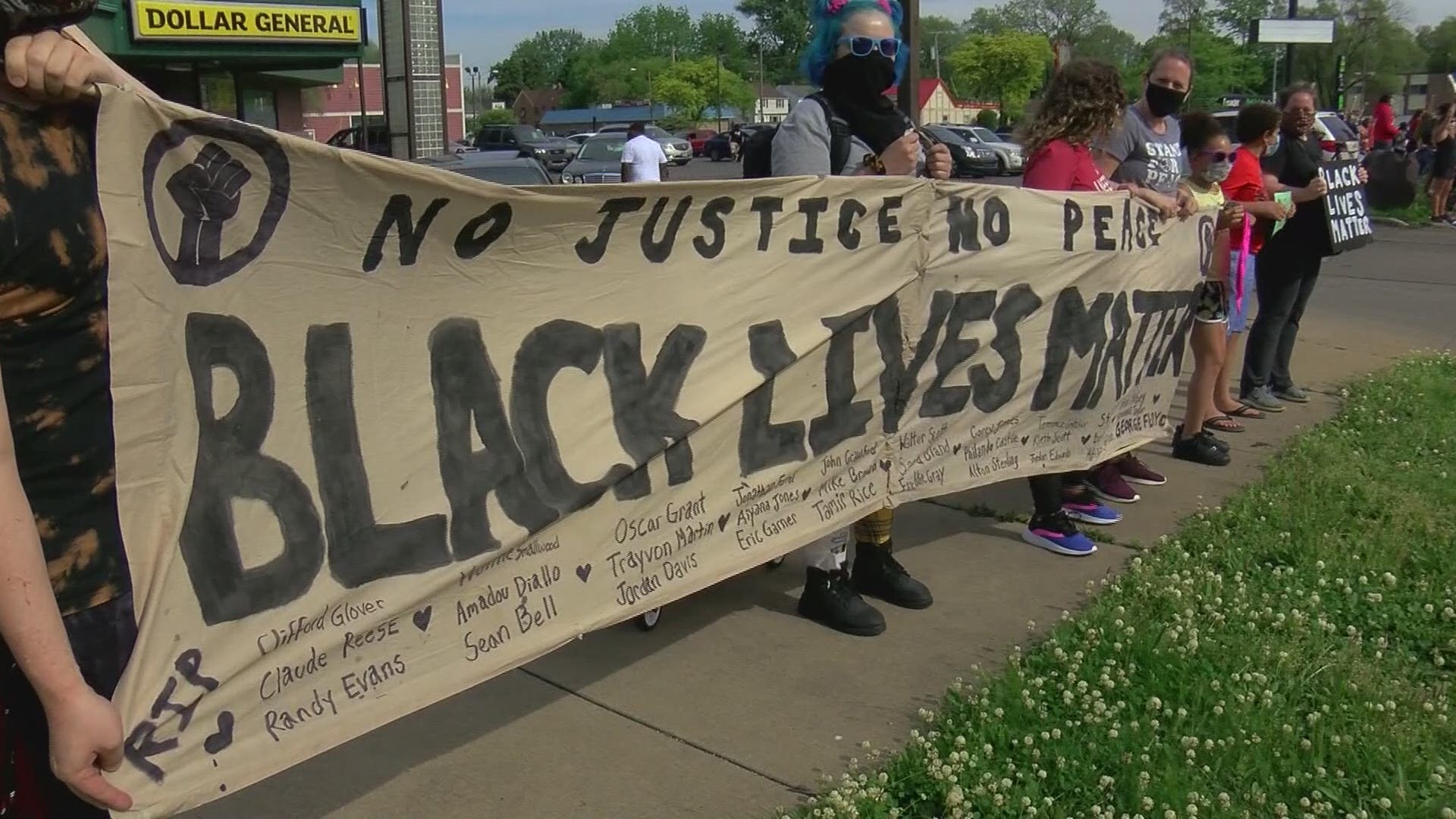TOLEDO, Ohio —
As the war against racism continues, dialogues on race relations are beginning to become more front and center across the country, world, and even right here in our own community.
The death of George Floyd, a black man who died at the hands of a white officer in Minneapolis, has sparked the outrage and protests from a collective diverse group of people around the world for several weeks now - but the frustration has been felt by Blacks for years.
The goal to simply be heard is slowly being answered through voices of change.
Friday
Black Americans die at the hands of police at more than double the rate of White Americans. It’s startling fact, recently highlighted by Campaign Zero, an advocacy group, pushing for police reform.
That call for reform and change is being echoed across the country, including right here in our community.
In communities nationwide even right here at home, the call for equality and justice is being made loud and clear. Prompting a push for police reform, promoting accountability and a stronger community bond – ending racial injustice, police brutality and even death at the hands of those who took an oath to protect and serve.
To conclude this week's dialogue, WTOL 11's Andrew Kinsey, talks about what change looks like right now with leaders within the community: Toledo Police Chief George Kral, State Representative and former Toledo Mayor Paula Hicks-Hudson and Oregon Police Chief Mike Navarre.
The conversation
Q: What are each of you hearing from those speaking out right now? Chief Kral we'll start with you.
A: They want change and not just, “OK something bad happened, we’ll talk for a couple weeks. We’ll go our separate directions.” This not going to stop. And to be perfectly frank, I'm happy about that because everyone sitting here, everyone wearing uniform has no problems with changing the criminal justice system to make things more equitable, fair, and um transparent for um everyone.
A: Hicks-Hudson: What I'm hearing is “we want justice” and justice from the perspective of being able to see and understand that people are really are people and that they should not be treated as anything less than um a human being. And that we have an opportunity as the chief said to really bring about change. And it’s not just lip service, but it’s really systemic change that can do what um police say that they’re supposed to do. Which is to protect and serve.

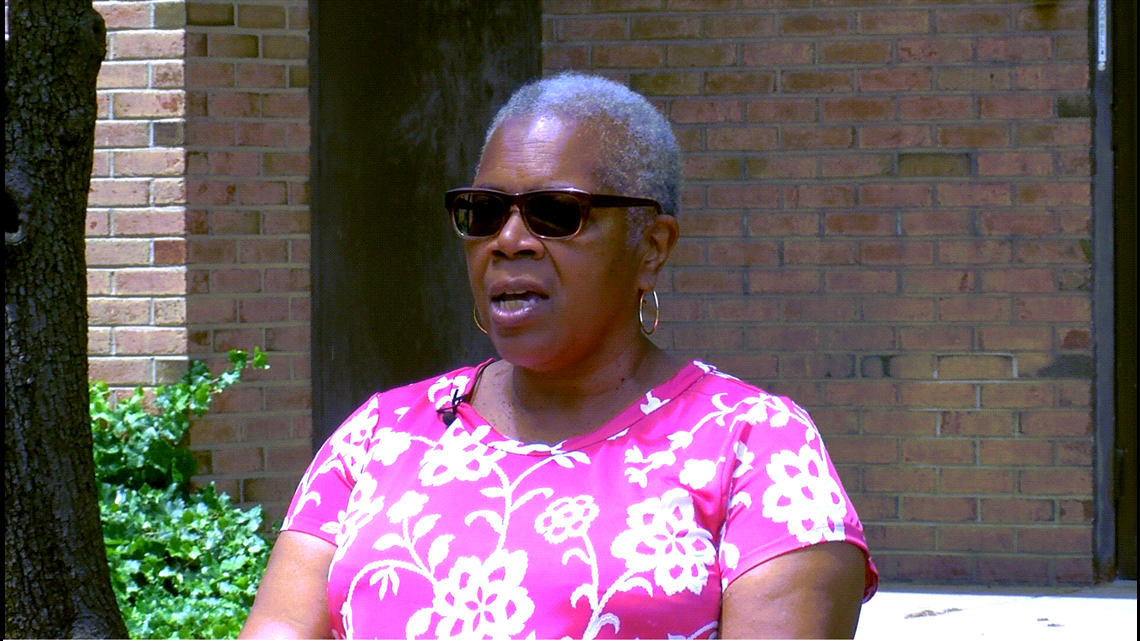
A: Chief Navarre: I think um they want change there’s no question about that. They don’t want a mandate solution, they want to see real change. Um we’ve been through this before but never like what I've seen in the last few weeks. Um, there’s an out cry across this country, there’s an out cry in Toledo, there’s an out cry in the city of Oregon. Um, they want justice. I agree with Mayor Hicks Hudson, they want justice and they want to see change. And they’re serious, and they are not going to settle for mandate solution.
Q: Chief Navarre you’re just wrapping up your term with the state police advisory board, where you addressed um recommendations, standards for police departments across the state. In that position did you find that there are departments are willing, and open for change, or could these concerns be falling on deaf ears?
A: No, to the contrary, um I’ve been very frustrated. Um I joined that taskforce in 2014, and um there were a lot of recommendations made. We traveled all around the state, we heard from a lot of people. We heard some of the outcry then, that we are hearing today. And there were a lot of sound recommendations. I spent a lot of time, and a lot of effort, those recommendations pretty much fell on deaf ears. There has been some progress made, but nowhere near what needs to be made to satisfy the community outrage that is going on right now in this um, in this country, in this state.
Q: Chief Kral, we talked about change, does it feel like this change may have should have happened sooner than now?
A: Oh, absolutely. Um, this is a real opportunity. Not just for local law enforcement, not even for this state, for this country. This is an opportunity to show that we are progressive, that we’re not stuck in the 60’s, in the 50’s. That we understand that things are different now than they were generations ago, and we should have been more proactive. I’m not gonna I’m not even gonna sugarcoat it. And um now I think you’re gonna see a lot of movement at the national level, at the state level, and locally here, and it’s a good thing.

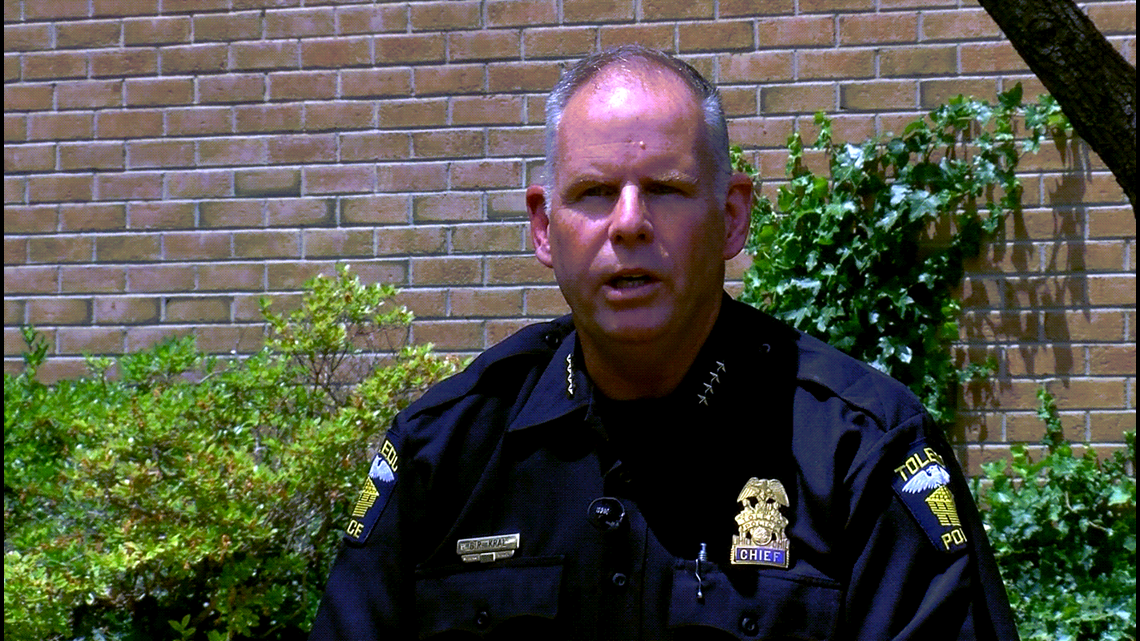
Q: The governor moving ahead with some police reforms, some suggestions proposing improving accountability, training, transparency, also asking the legislator to approve banning of choke holds, unless someone’s life is threatening. Your thoughts about these proposals and how swiftly these can be implemented.
A: Well starting with the choke holds, that’s a no brainer. There shouldn’t be a police department anywhere that says that’s allowable, unless it's a fatal for situation. We’ve never done it, I’ve been with TPD for 30 years, we’ve never been authorized to do it, we’ve never been trained in it, that’s easy. The other changes that he’s making like changing our certificate into a license that can be regulated that can be suspended, fantastic idea, it’s great. Anymore, any addition oversight that can make our profession more legitimate, I am 100 percent behind it. I was on a conference call with the governor, and I’m assuming Chief Navarre was on that as well, and everything that he has proposed, and AG Yost, it’s spot on, it’s timely, and it’s just as important. It can be done very quickly.

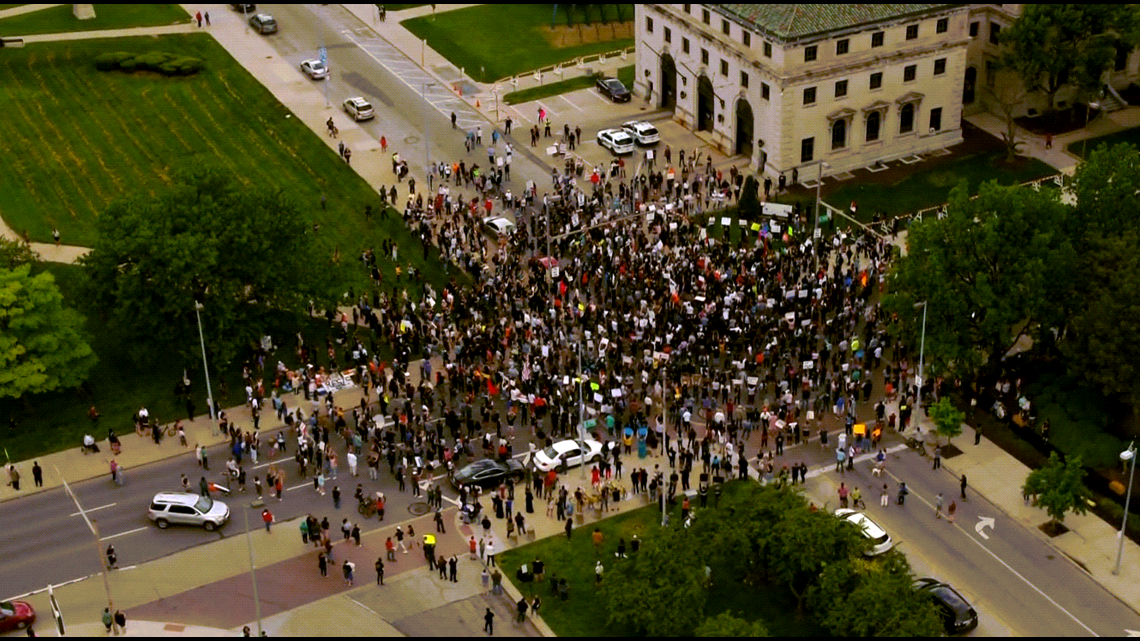
Q: Representative Hicks Hudson, this training, this proposed training. It’s not gonna come free. These departments already cashed wrapped. Where’s this permanent funding gonna come from to ensure that this continues on.
A: Well I think just that as we have um designated funding for Lake Erie for a ten-year period. We can also designate funding for this particular um challenge that we have, and I know that in our caucus the um democratic caucus, we have been proposing these types of changes and solutions for a number of years. So really what we’re hearing is nothing really new. I do think that there maybe a will to implement them. So in terms of funding, yeah we’re gonna be going into January, into a new budget cycle, so they’ll be dollars there. Also, right now we have we’re maybe not in the best place financially because of COVID, and the lack of income coming into the state. But that does not mean that we cannot be use our imaginations, our ingenuity to come up with those dollars. Because the licensing doesn’t really require a lot of money, the implementation of some of the other changes don’t require money, they just require folk to get up and do what they need to do.
Q: Alright Chief Navarre, speaking of funding, there’s been this call for defunding police. Is that even realistic?
A: I echo the governor’s comments last week when he said that “that’s absurd” There’s a need for police reform, defunding is not the answer. We need to see real sensible police reform. I think it needs to be said that police officers have an incredibility dangerous job, and it’s a very difficult job. And as a Chief of police, we have a responsibility to provide them with the best training and the best equipment. And if we can’t do that, then maybe we should rethink our existence as a police department. Um, my ten year in Toledo, and my teen year in Oregon, training is never tied to funding. Other states have found a way to provide and mandate 40 hours of in service training for every police officer annually. Ohio needs to do the same. The governor is doing all the right things, I think he needs to be a little stronger, on the subject of mandated training. It can’t be tied to funding, if he does that it’s gonna be short term solution and we’re gonna all right back into this same situation four years from now and the state can’t find funding to fund training. Training is the responsibility of the Chief of police.

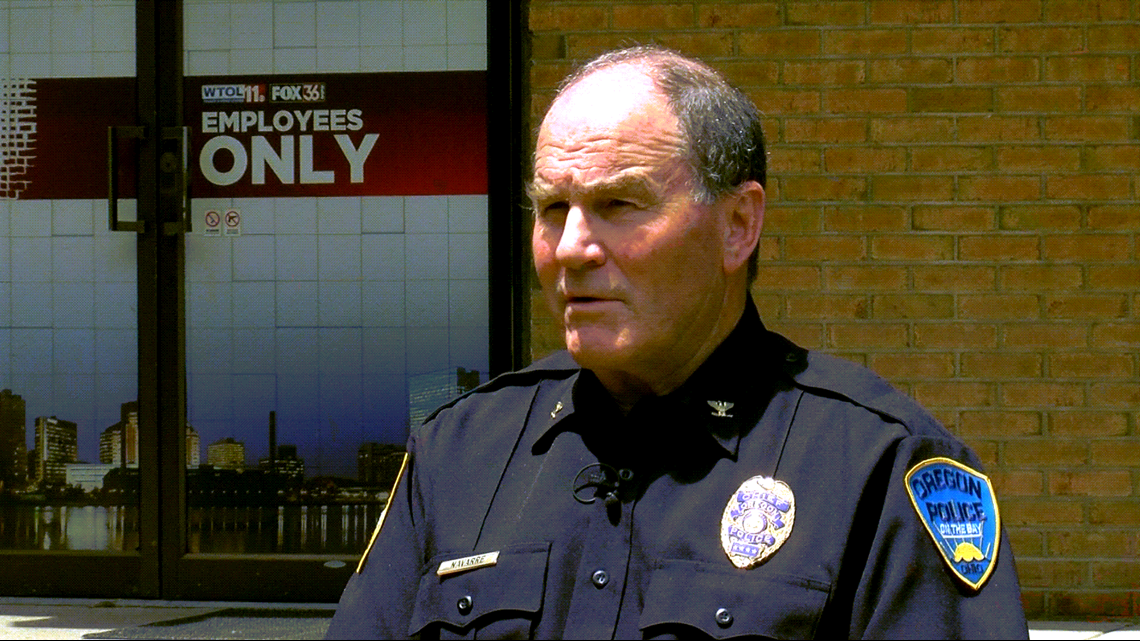
A: Hicks Hudson: I know you asked him that question, I have to jump in because I really believe that we need to stop using words that are not accurate. No one's talking about defunding police, what we’re talking about is do we need reallocation of funds. To enhance training, to improve the delivery of services. We talk about protecting and serving, that requires a different mindset, it requires different training, it requires different things. When you hear that buzz word “defunding the police” that’s not what that means. It means reallocations of those dollars to ensure that while part of your job is critical, and not only critical but, dangerous, part of your job is to deescalate, no to keep the peace. And that might require some different kinds of skills. So I just, I know you wanted to do your whatever, but it’s really important, that I can’t sit here, and I won’t sit here and allow. Words matter, and I won’t allow that word to just be used, and responded to without putting truth to it because the other part that we have to do as part of this change and for justice is really talk about, and tell the truth about what’s happening in our society within ya know just what’s going on, so yeah.

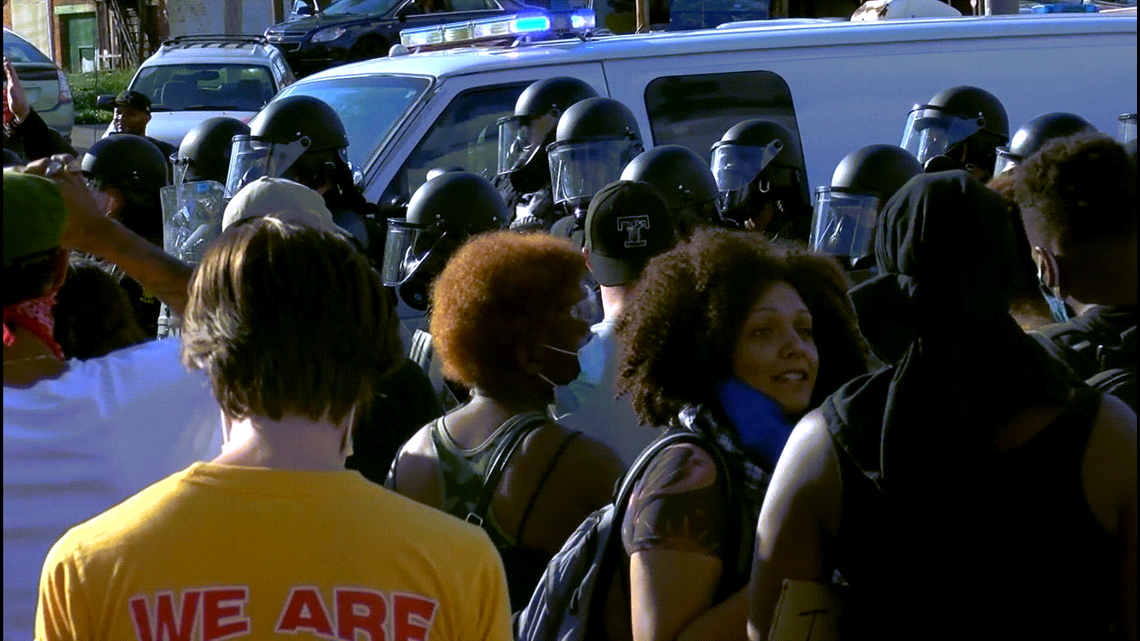
Q: Chief Navarre, based off your training, going across the state, how are departments supposed to deal with real reform when many of them answer to unions. Are unions the blocking stone for real reform?
A: I don’t believe so. I think unions want to due process, and they should get due process. I haven’t quiet understood how these other cities, in other states are able to terminate police officers the day after the incident happened. You can’t do that in the state of Ohio. If you do that, you’re gonna have a problem down the road. We negotiate those contracts, as management if there’s something in that contract that we feel is inhibiting our ability to manage the department properly, every three years we have the opportunity to change that. I don’t feel that my teen year in Toledo I was ever inhibited by the union contract to manage properly and require officers to do their job and hold them accountable.
Q: Chief Kral, Mayor Kapszukiewicz vowing to revive and strengthen the city civilian police review committee something all three of you all are quiet familiar with, however, one of the demands now giving them subpoena powers, is this a good, bad idea?

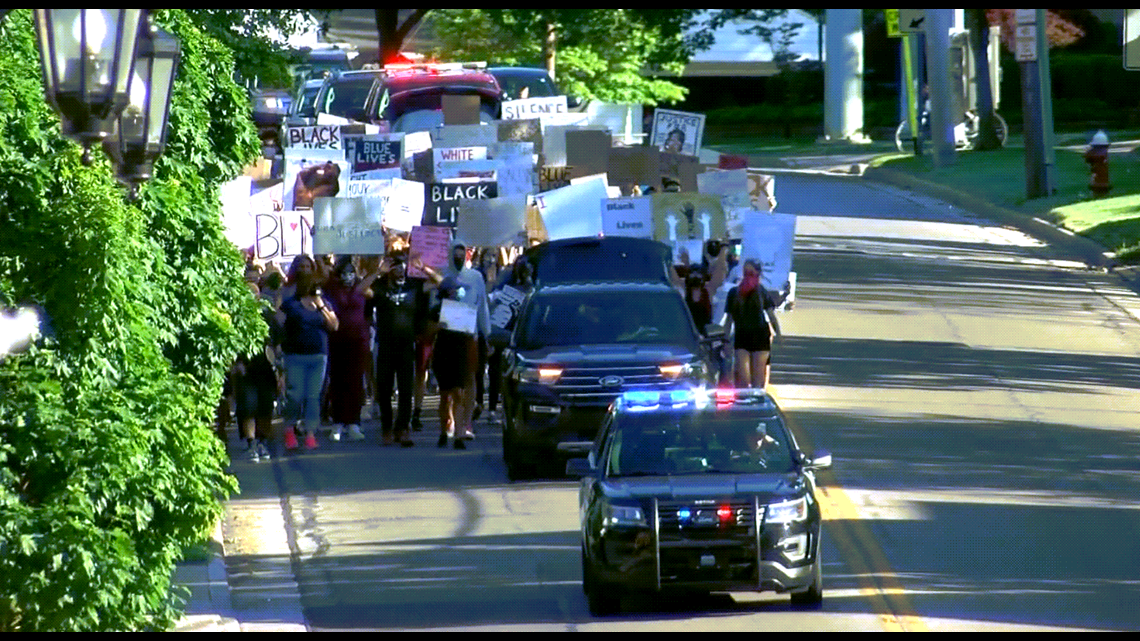
A: Chief Kral: well this is an issue where you need to tap the brakes a little bit and talk about it. Civilian police review boards can be an advisory level down here, and have hiring and firing power at the other end of the spectrum. I think we need to find out what bets practices are being done in other cities in the United States, and then sit down with the council, and the administration, and the police department and say what works here and enact that. This isn’t something that gets introduced on a Tuesday, and they both work the next Tuesday. I think this is something that if we’re gonna do it right, that’s really important to me, I’m all for it. I mean look at the military, the military are governed and supervised by civilians. And there's no reason why it shouldn’t be this way here. But this is something that we need to be informed and we need to make sure it’s gonna work here in Toledo.

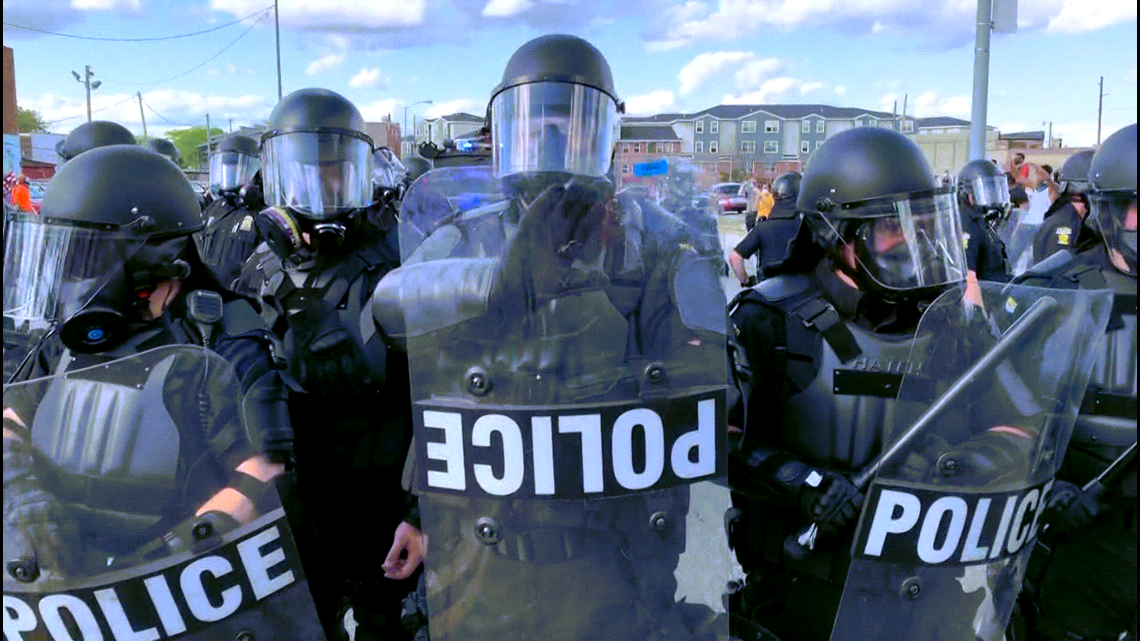
Q: Representative Hicks Hudson, the state can pump money into training, but how can leaders and lawmakers actually address what appears to be at the heart of the issue here, unconscious bias?
A: Well I'm glad you asked that question because in the house we have introduced um a resolution to claim racism as a public health crisis. And that is an acknowledgement that the bedrock of so much of what was happening and why we’re at this point in our society. Is because we have not acknowledged the what I call the original sin. Which is slavery in the beginning of this country, and by once you identify what the issue is, then you can work to um to correct it. And by saying that an African American was three fifths of a person. And that unfortunately if we look at the history of policing in this country, it was designed to protect those property owners. And so we need to look at all that and bring that up to today. And when we do that as leaders, we can say yes we know that’s an issue, and as we produce more legislation with that lens, we can actually I think bring about what I talked about earlier which is justice. And acknowledge the problem, and then also acknowledge ways to solve that problem. And it’s up to us as leaders to do that, and unfortunately my colleagues last Thursday night choose not to do something that was very simple. Which was to ban the confederate flag at county fairs.

